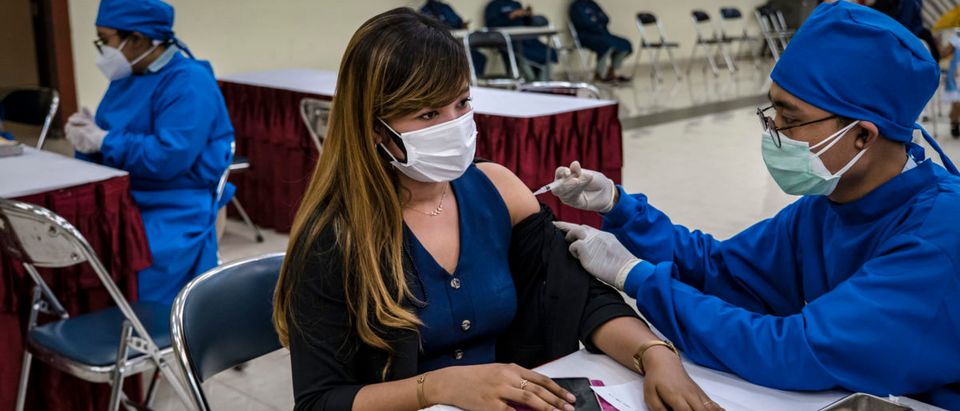A new study funded by the National Institutes of Health (NIH) is the latest to show that there is no connection between COVID-19 vaccines and infertility in either women or men.
The study, published in the American Journal of Epidemiology and funded by the NIH’s Eunice Kennedy Shriver National Institute of Child Health and Human Development, found “no adverse association” between getting vaccinated against COVID-19 and fertility in 2,000 couples in the United States and Canada.
A new study adds to the growing evidence that COVID-19 vaccines are safe for both pregnant people and people hoping to become pregnant. https://t.co/rGlcPrygko
— ABC News (@ABC) January 25, 2022
It did find, however, that contracting COVID-19 itself can temporarily suppress a man’s fertility. Couples in which the male partner contracted COVID-19 within 60 days of their partner’s menstrual cycle saw an 18% reduction in their chance of conceiving during that cycle.
Concerns about infertility have been cited by many opponents of COVID-19 vaccinations as a reason not to get the jabs. However, the NIH study isn’t the first to find that fertility is unaffected by the shots.
A Centers for Disease Control and Prevention (CDC) study published Jan. 4 found that there was no increased risk of preterm or low-weight births from pregnant women who got a COVID-19 vaccine. The CDC also has not found any evidence of an increased risk of miscarriage in vaccinated women.
Additionally, the American College of Obstetricians and Gynecologists and the Society for Maternal-Fetal Medicine both urge all pregnant women to get vaccinated, as does the World Health Organization. (RELATED: POLL: Majority Of Independents Want Anthony Fauci Gone)
A study published Jan. 13 in Nature Medicine found that pregnant women who are unvaccinated who got COVID-19 were more likely to have a preterm birth or pregnancy loss.
“The findings provide reassurance that vaccination for couples seeking pregnancy does not appear to impair fertility,” said Dr. Diana Bianchi, director of the NIH’s National Institute of Child Health and Human Development. “They also provide information for physicians who counsel patients hoping to conceive.”


